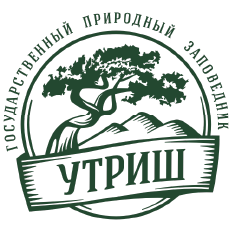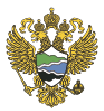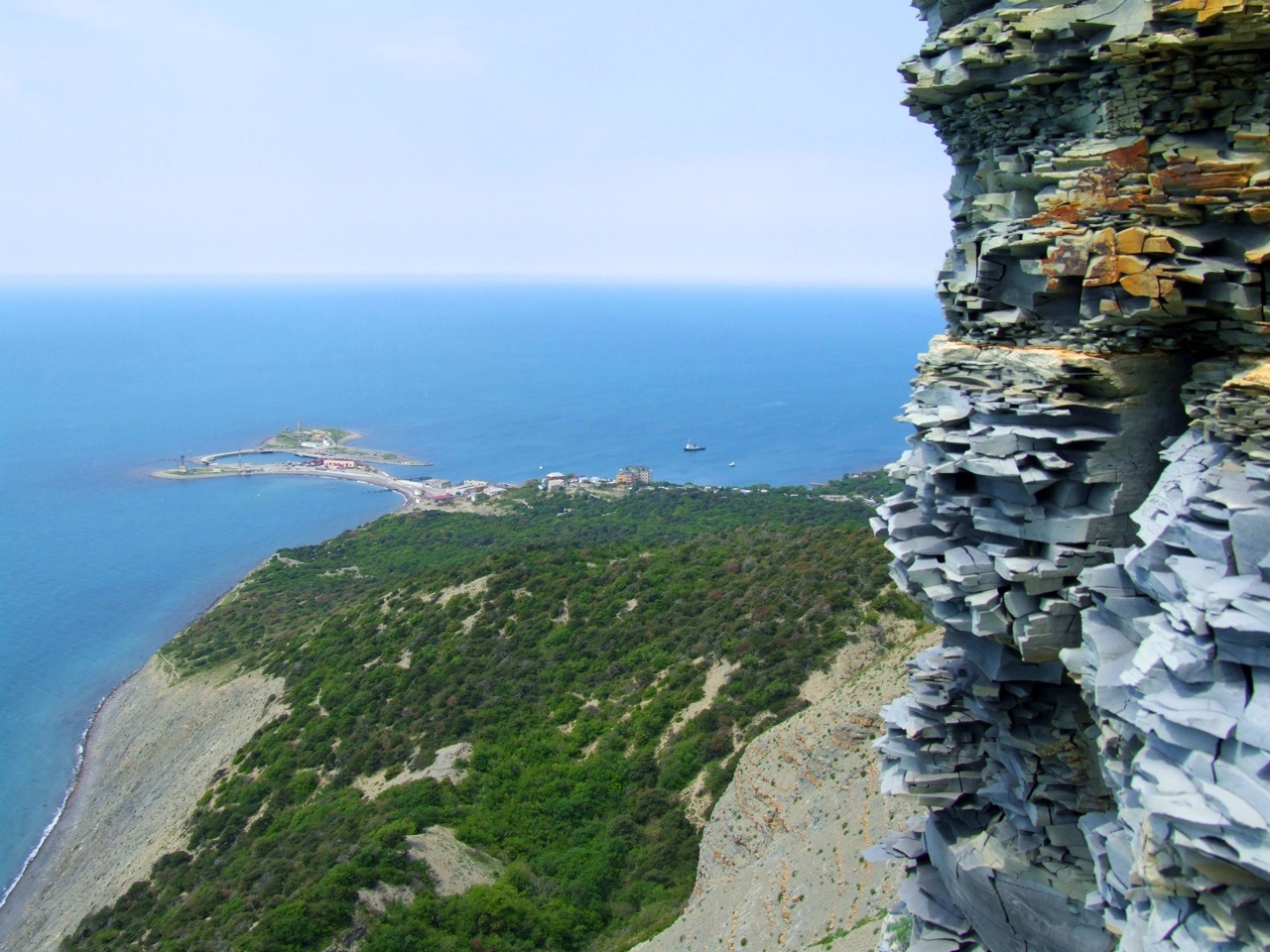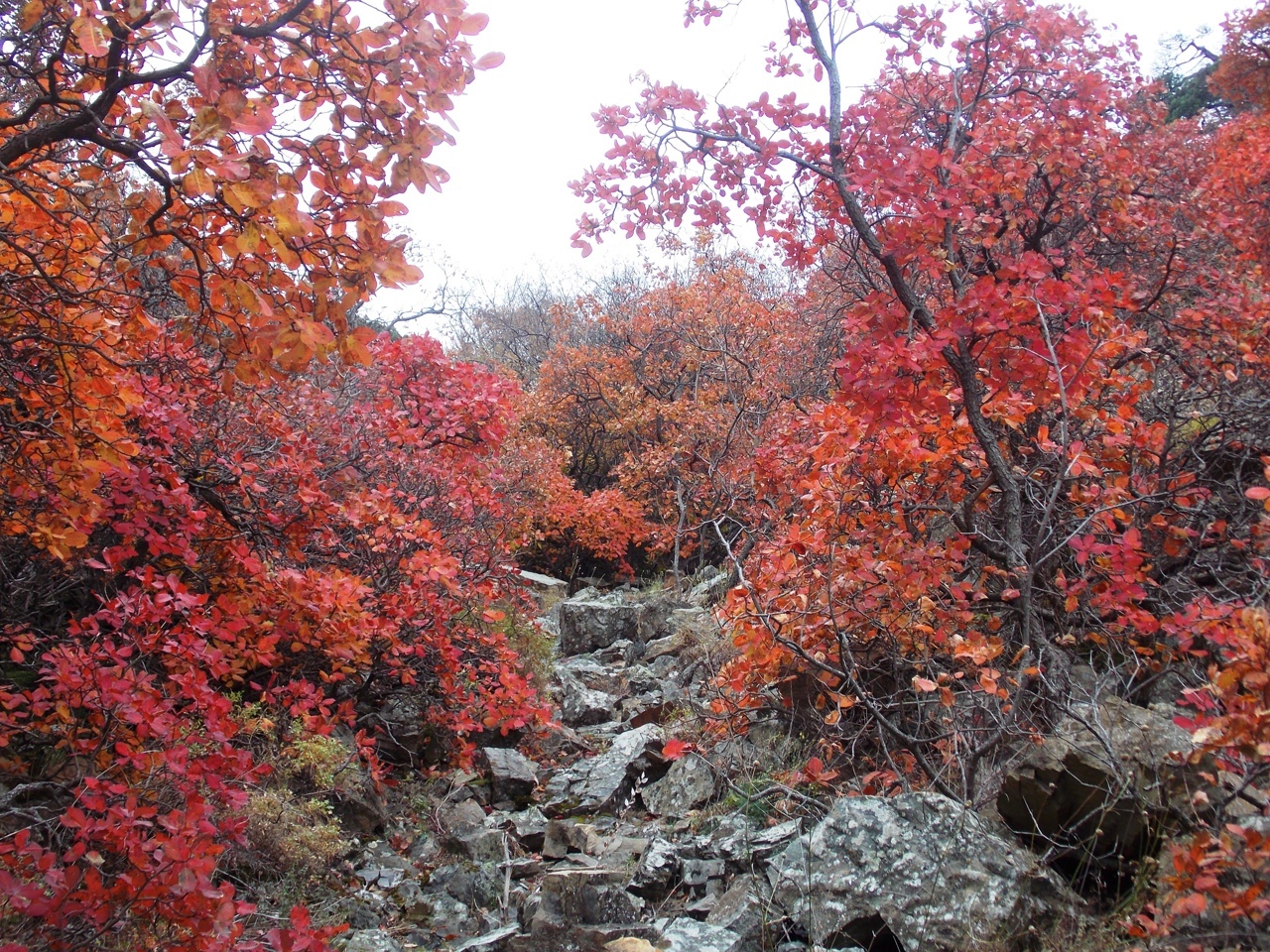Russia’s Black Sea coast is well known worldwide as a majorvacation destination, where people
flock to enjoy warm climates andbeautiful beaches. Indeed, the region ishighly developed and populated, likemuch of the European MediterraneanSea coast.
So the presence of an intactband of xerophytic (dry) subtropic alforest here in the high elevations alongthe Black Sea is particularly surprising. This Mediterranean vegetation type, characterized by Pistachio (Pistaceo)and Juniper (Juniperus) forests, is a unique representative of a relict vegetative community that has survived since the Tertiary era, roughly 60 million years ago. One factor that may explain why these pockets of forests survived for so long is the strict militarized regime that was observed in this border region with Turkey for much of the Soviet period. In recent decades, however, relaxed border controls and the influx of visitors and tourists pose a serious threat to the rare ecosystem. This special forest type is found in the ridges that line the Black Sea coast and represent the foothills of the Western Caucasus range. In this area, it is the slopes and canyons of the Abrau Peninsula (with elevations ranging from 150 to 300 m above sea level) in the central region of the eastern coastline that boast the highest level of biodiversity and endemism in the Black Sea region. The Pistachio-Juniper (Pistacio muticaeJiiniperus excelse) community is characterized by tree groves such as privet (Ligustrum sp,), smoke-tree (Cotinus coggygria), and germander (Teucrium).While this forest grows at an elevation up to 200 m, another forest type, oakhornbeam (Quercuspubescens-Carpi-nus orientalis) is found at slightly higher elevations. In total, 38 endemic species have been identified on the Abrau Peninsula, including pubescent oak IQuercuspubescens), juniper (Juniperus excelsa, J.oxycedrus), Celtis glad rata, Pistacea mutica, a species of whitebeam (Sorbus taurica), a species of jasmine (Jasminum fmticans), and a species of honeysuckle (Lonicera etrusca). Approximately 40 to 50 plant species found here are listed in the Red Data Books of Russia as well as the Krasnodar region.
In the last 30 years, increasing numbers of people, accompanied by road and resort construction and agricultural development, have drastically transformed the landscape on the Abrau Peninsula situated between the cities of Anapa and Novorossiysk. The spread of civilization has fragmented the territory here and eliminated many species from their native habitats. Agricultural run-off containing hazardous pesticides and insecticides has contaminated the environment. Although Russia’s Mediter¬ranean zone is fairly expansive (200,000 km^), the remaining forest fragments are ever-shrinking. Forty years ago, the Pistacio-Juniperus forests encompassed some 4,500 hectares (ha). Today, only 20 ha remain.
As these globally important forests vanish, their protection becomes all the more urgent. Early efforts in conserving the pistachio-juniper forests were made in the early 1980s when the creation of Utrish Zapovednik was proposed. Yet, this Zapovednik still has not been established. One obstacle to designating a new strictly protected area is the large number of people who reside in this the region. To operate as a Zapovednik, the reserve would have to re-locate these people—a complicated and unpopular task that would cause only problems for the new reserve.
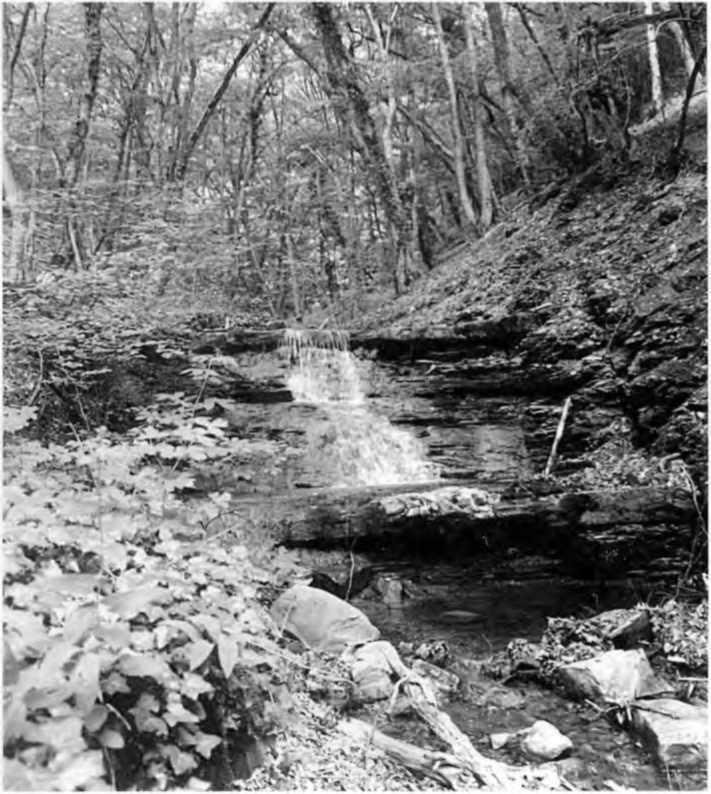
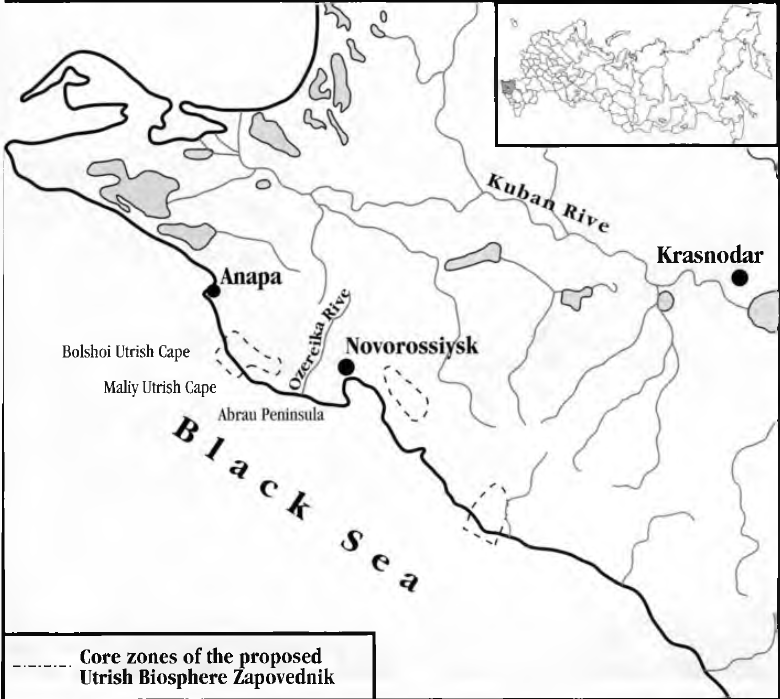
As an alternative, some have suggested the creation of a Biosphere Zapovednik that would allow limited human activity in designated areas within the reserve. (.Please see RCN #18 for more information
on Biosphere Zapovedniks). As a Biosphere Reserve, the new protected area would encompass 183,000 ha with three core zones each covering an area of ha, plus a 43,500 ha buffer zone abutting these core protected zones. This area, however, represents only a tenth of the territory essential to protect the relict vegetative communities. Thus, establishing Utrish would be only the first stage in conserving Russia’s Mediterranean
vegetative zone. Today, the only officially protected areas in this region are Zakazniks (special purpose preserves). One of these Zakazniks, also named Utrish, was organized in the late 1990s and is administered on the local level by officials in Anapa. Paradoxically, though, rather than improving conservation here, this Zakaznik has actually confounded nature protection efforts. To generate income, the administration has promoted tourism, but has not controlled or managed it adequately. Now, high numbers of people are paying entrance fees to come and enjoy the Zakaznik’s picturesque seacoast. Although the exact number of visitors was not recorded last year, their density was enough to create a solid patchwork of tents stretching for one kilometer along the coast. Heavy foot and vehicle traffic in the Zakaznik have compacted the plant cover in sections of Pitsunda pine (Pinus brutia) groves, a species listed in the Russian Red Data Book. The virtual absence of sanitation facilities has turned some of its forest plots into enormous makeshift dumps. Although a serious cause of concern, careless recreation is far from the only threat to this region’s existing and proposed protected areas. In 1998, upon the initiative of the Caspian Sea Oil Consortium, work began on an oil pipeline that will run through the proposed core section of Utrish Biosphere Zapovednik on Abrau Peninsula, and through a small village, where it will exit to the sea. During this project’s environmental assessment, experts suggested that the pipeline be built further to the east, so that it would run along, not through, the borders of the proposed Zapovednik and the existing Abrausky Zakaznik. In this alternative
plan, the pipeline would exit to the sea near the city of Novorossiysk. However, the residents of Novorossiysk, wary of yet another project in their already heavily industrialized city, protested against this option. The latter plan would have been slightly more expensive, another factor leading to its eventual rejection. Conservationists are concerned about the plan for several reasons. In addition to dividing one of the future Zapovednik’s core zones into two unequal parts, the pipeline will disrupt the few spots of Pista-cio—Juniperus forests in the Ozereik River valley (,please refer to accompanying map) that support istinctive Mediterranean flora and such as the endemic turtle (Testudo graeca nikol-skii). In the case of an accident, oil would inundate the river, poisoning the nearby land and marine ecosystems. Moreover, the pipeline will present a large obstacle in the seasonal and daily migrations of mammals as well as amphibians and reptiles. The oil pipeline project is just the latest in a string of human activities that are undermining this exceptional, and rare, enclave of Mediterranean flora and fauna.
With an ineffective system of existing protected areas and the creation of new areas at a standstill, it is probable that the story of vanishing Mediterranean species could be repeated here in the western will also act as a trap for animals attracted to its warm surface.
Caucasus. But, this doesn’t have to be the case. It has been suggested that this region be nominated as a
UNESCO World Heritage Site in order to bring greater recognition to it and perhaps even accelerate the creation of Utrish Biosphere Zapovednik...before it is too
Olga A. Leontyeva is an instructor in the Department of Biogeography at Moscow State University.

